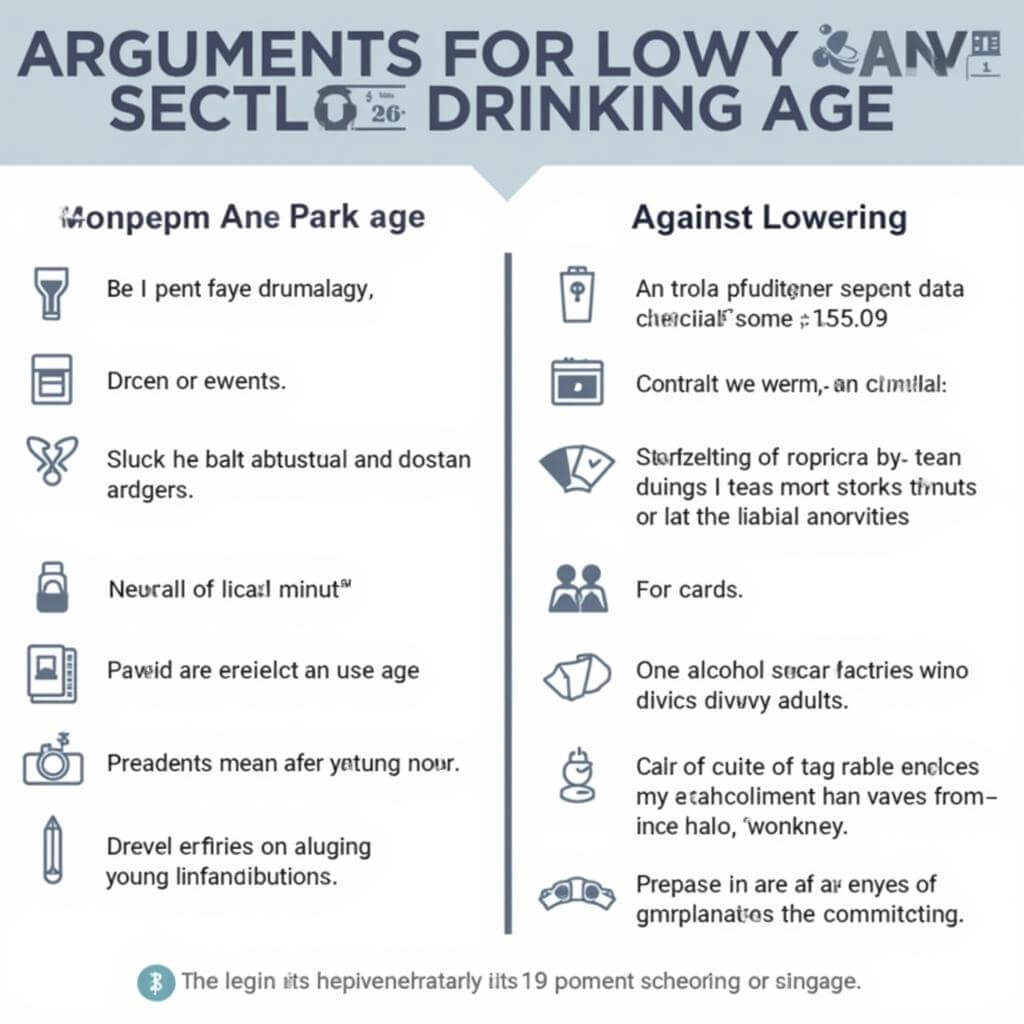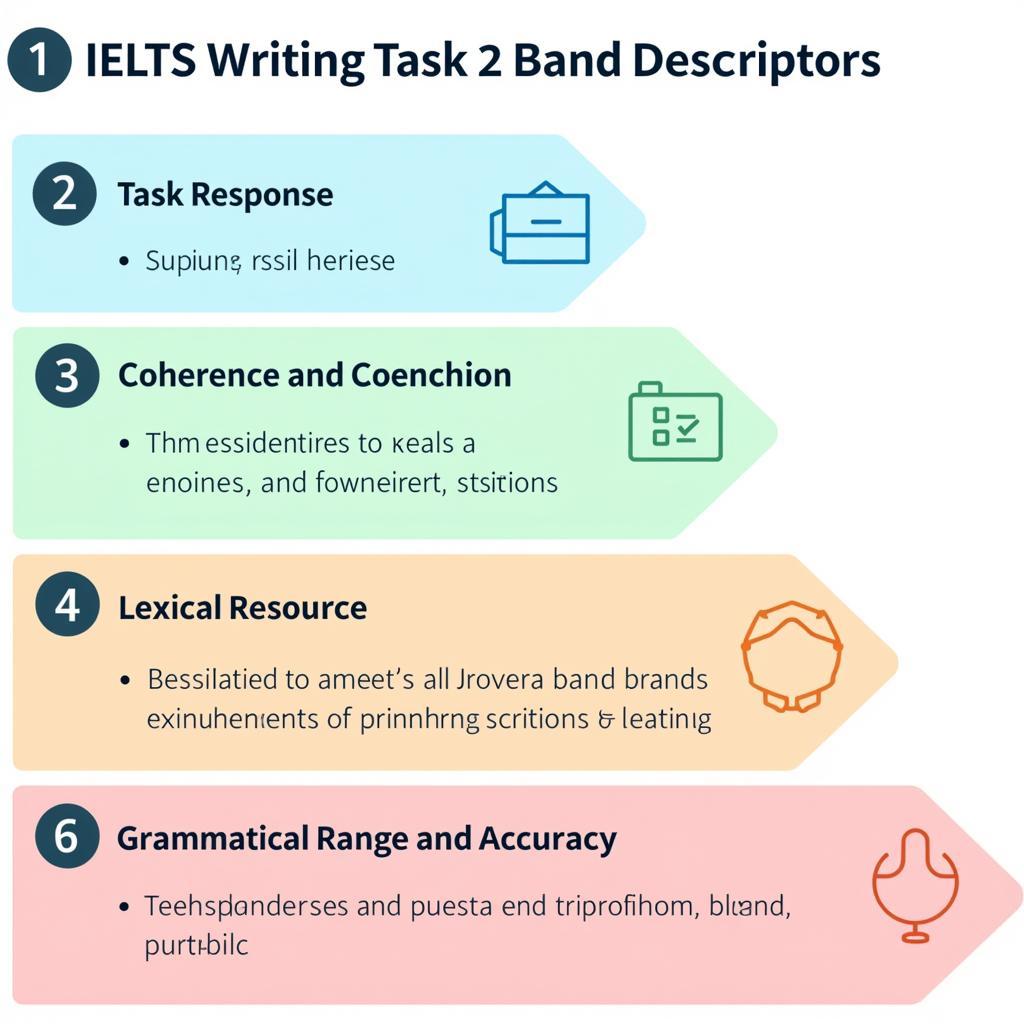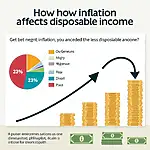The topic of lowering the legal drinking age has been a recurring theme in IELTS Writing Task 2 questions. Based on analysis of past exams and current trends, this issue is likely to appear in future tests due to its relevance to social policies and public health debates. Let’s examine a sample question that closely reflects the types of prompts candidates might encounter:
Some people think that the legal drinking age should be lowered. To what extent do you agree or disagree with this opinion?
Analysis of the Question
This question is asking for your opinion on whether the legal drinking age should be reduced. It’s an agree/disagree type question, which means you need to clearly state your position and support it with well-developed arguments. The phrase “to what extent” allows for a nuanced response, where you can partially agree or disagree if you wish.
Key points to consider:
- The current legal drinking age in your country or internationally
- Potential benefits of lowering the drinking age
- Possible negative consequences of such a change
- The impact on young people, society, and public health
- Alternative approaches to addressing alcohol-related issues
Model Essay 1 (Band 8-9)
Alcohol consumption among young people has long been a contentious issue, with some advocating for a lower legal drinking age. While I understand the arguments in favor of this change, I strongly disagree with lowering the drinking age due to the potential risks to public health and safety.
Proponents of a lower drinking age often argue that it could promote responsible drinking habits. They contend that by allowing younger individuals to consume alcohol legally, society can better educate them about moderate consumption in controlled environments. Additionally, they suggest that a lower age limit might reduce the allure of illegal drinking, potentially decreasing dangerous binge-drinking behaviors. However, these arguments fail to consider the broader implications of such a policy change.
The primary reason I oppose lowering the legal drinking age is the well-documented vulnerability of the developing brain to alcohol. Neuroscientific research has consistently shown that the human brain continues to develop well into the mid-20s, with areas responsible for decision-making and impulse control being particularly susceptible to damage from alcohol use. Lowering the drinking age would expose more young people to these risks at a critical stage of their cognitive development, potentially leading to long-term negative consequences for both individuals and society.
Furthermore, a lower drinking age could exacerbate existing public health and safety concerns. Statistics from countries with lower drinking ages often reveal higher rates of alcohol-related accidents, injuries, and deaths among young people. For instance, when some U.S. states lowered their drinking age to 18 in the 1970s, they saw a significant increase in alcohol-related traffic fatalities. This led to the nationwide adoption of a 21-year-old drinking age, which subsequently reduced such incidents.
Instead of lowering the drinking age, I believe we should focus on more effective alcohol education and stricter enforcement of existing laws. Comprehensive education programs that start in early adolescence and continue through young adulthood can help instill responsible attitudes towards alcohol without prematurely exposing young people to its risks. Additionally, better enforcement of current age restrictions and harsher penalties for those who provide alcohol to minors could serve as more effective deterrents.
In conclusion, while the debate around the legal drinking age is complex, the potential risks to public health and safety outweigh any perceived benefits of lowering it. A more prudent approach would be to maintain the current age restrictions while improving education and enforcement measures to foster a culture of responsible alcohol consumption.
 Infographic on legal drinking age debate
Infographic on legal drinking age debate
Model Essay 2 (Band 6-7)
The legal drinking age is a topic that many people have different opinions about. Some think it should be lower, but I don’t agree with this idea. I believe keeping the current age limit is better for several reasons.
First, young people’s health is very important. When people drink alcohol at a young age, it can be bad for their bodies and brains. Scientists say that the brain is still growing until people are in their early 20s. Drinking alcohol before the brain is fully developed might cause problems with memory and learning. If we lower the drinking age, more young people might have these health issues.
Second, there’s a big concern about safety on the roads. Young drivers are already at higher risk of accidents because they don’t have much experience. If we add alcohol to this, it could be very dangerous. There might be more car crashes and injuries if younger people can drink legally. This would not only hurt the young drivers but also other people on the road.
However, some people say that lowering the drinking age could help young people learn to drink responsibly. They think that if drinking is legal, young people will be more open about it and ask for help if they need it. This is a good point, but I think there are better ways to teach responsible drinking without changing the law.
Instead of lowering the drinking age, we should focus on better education about alcohol. Schools and parents can teach young people about the risks of drinking and how to be safe if they choose to drink when they’re older. This education can start early and continue until they reach the legal age.
In conclusion, I disagree with lowering the legal drinking age because of the health and safety risks. It’s better to keep the current age limit and improve how we teach young people about alcohol. This way, we can protect their health and safety while still preparing them to make good choices about drinking when they’re older.
Model Essay 3 (Band 5-6)
Nowadays, some people think that the government should make the legal drinking age lower. But I don’t agree with this idea. I think it’s not good for young people and society.
The main reason I don’t agree is because of health. Young people’s bodies are still growing. Drinking alcohol can hurt their health. It can make it hard for them to think clearly and remember things. If we let younger people drink, they might have more health problems when they get older.
Also, it’s dangerous for driving. Many young people drive cars or motorbikes. If they can drink earlier, there might be more accidents on the road. This is very dangerous for everyone, not just the young drivers.
Some people say that if we lower the age, young people will learn to drink better. They think it will stop secret drinking. But I don’t think this is true. Young people might just start drinking more if it’s legal.
I think it’s better to teach young people about alcohol in school. They can learn why it’s dangerous and how to be safe when they’re older. This is a better way to help them than changing the law.
In conclusion, I don’t agree with making the legal drinking age lower. It’s better to keep it the same and teach young people more about alcohol. This will help keep them safe and healthy.
Explanation of Band Scores
Band 8-9 Essay:
- Task Response: Fully addresses all parts of the task with a clear position, well-developed ideas, and relevant examples.
- Coherence and Cohesion: Logically organized with clear progression throughout. Uses a range of cohesive devices effectively.
- Lexical Resource: Uses a wide range of vocabulary with very natural and sophisticated control of lexical features.
- Grammatical Range and Accuracy: Uses a wide range of structures with full flexibility and accuracy.
Band 6-7 Essay:
- Task Response: Addresses all parts of the task, although some parts may be more fully covered than others.
- Coherence and Cohesion: Arranges information coherently and there is clear overall progression. Uses cohesive devices but may be over- or under-used.
- Lexical Resource: Uses an adequate range of vocabulary for the task. There may be some errors in word choice but meaning is generally clear.
- Grammatical Range and Accuracy: Uses a mix of simple and complex sentence forms. Makes some errors in grammar and punctuation but they rarely reduce communication.
Band 5-6 Essay:
- Task Response: Addresses the task only partially. The format may be inappropriate in places.
- Coherence and Cohesion: Presents information with some organization but there may be a lack of overall progression. Uses some basic cohesive devices.
- Lexical Resource: Uses a limited range of vocabulary, but this is minimally adequate for the task. May make noticeable errors in spelling and/or word formation that may cause some difficulty for the reader.
- Grammatical Range and Accuracy: Uses only a limited range of structures. Attempts complex sentences but these tend to be less accurate than simple sentences.
 IELTS Writing Task 2 Band Descriptors
IELTS Writing Task 2 Band Descriptors
Key Vocabulary to Remember
- contentious (adjective) /kənˈtenʃəs/ – causing or likely to cause disagreement; controversial
- advocate (verb) /ˈædvəkeɪt/ – to publicly support or recommend a particular cause or policy
- binge-drinking (noun) /ˈbɪndʒ ˌdrɪŋkɪŋ/ – the practice of drinking a large quantity of alcohol in a short period
- vulnerability (noun) /ˌvʌlnərəˈbɪləti/ – the quality or state of being exposed to the possibility of being attacked or harmed
- exacerbate (verb) /ɪɡˈzæsərbeɪt/ – to make a problem, bad situation, or negative feeling worse
- deterrent (noun) /dɪˈterənt/ – a thing that discourages or is intended to discourage someone from doing something
- prudent (adjective) /ˈpruːdnt/ – acting with or showing care and thought for the future
- instill (verb) /ɪnˈstɪl/ – gradually but firmly establish an idea or attitude in a person’s mind
- comprehensive (adjective) /ˌkɒmprɪˈhensɪv/ – including or dealing with all or nearly all elements or aspects of something
- susceptible (adjective) /səˈseptəbl/ – likely or liable to be influenced or harmed by a particular thing
In conclusion, the debate over lowering the legal drinking age remains a significant topic in IELTS Writing Task 2. While this essay focused on arguments against lowering the age, it’s crucial for test-takers to be prepared to discuss both sides of the issue. Future prompts might explore related themes such as:
- The effectiveness of current alcohol policies in reducing underage drinking
- Cultural differences in attitudes towards alcohol consumption
- The role of education in promoting responsible drinking habits
- The impact of social media and advertising on young people’s attitudes towards alcohol
To further improve your writing skills, try crafting your own essay on this topic and share it in the comments section below. This practice will help you refine your arguments, improve your structure, and expand your vocabulary on this important issue.


